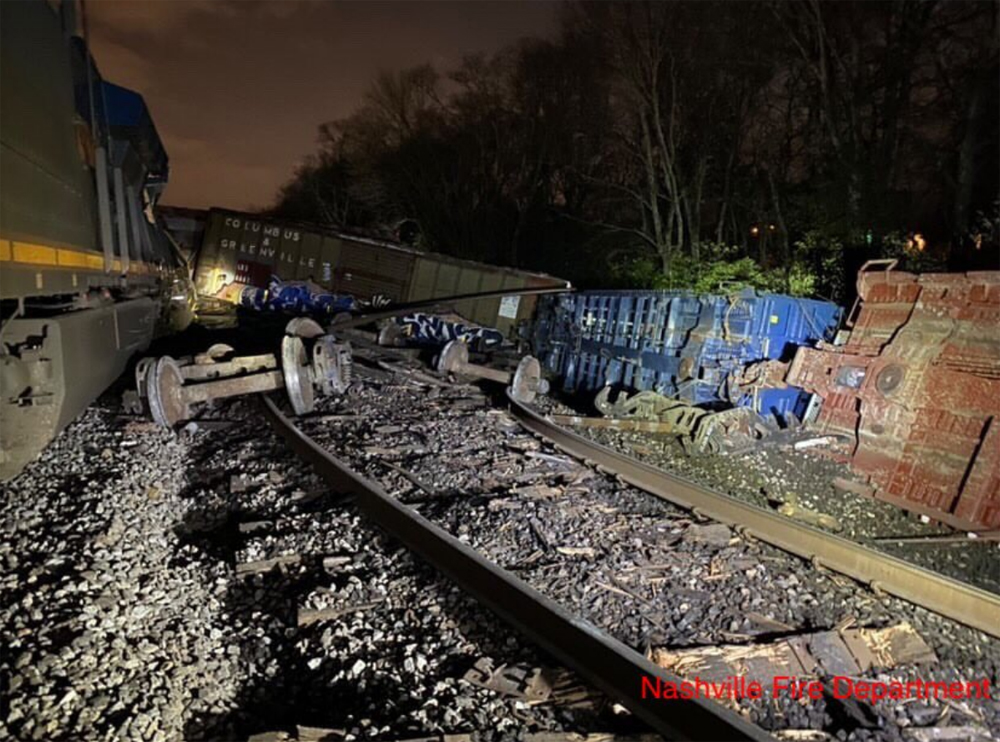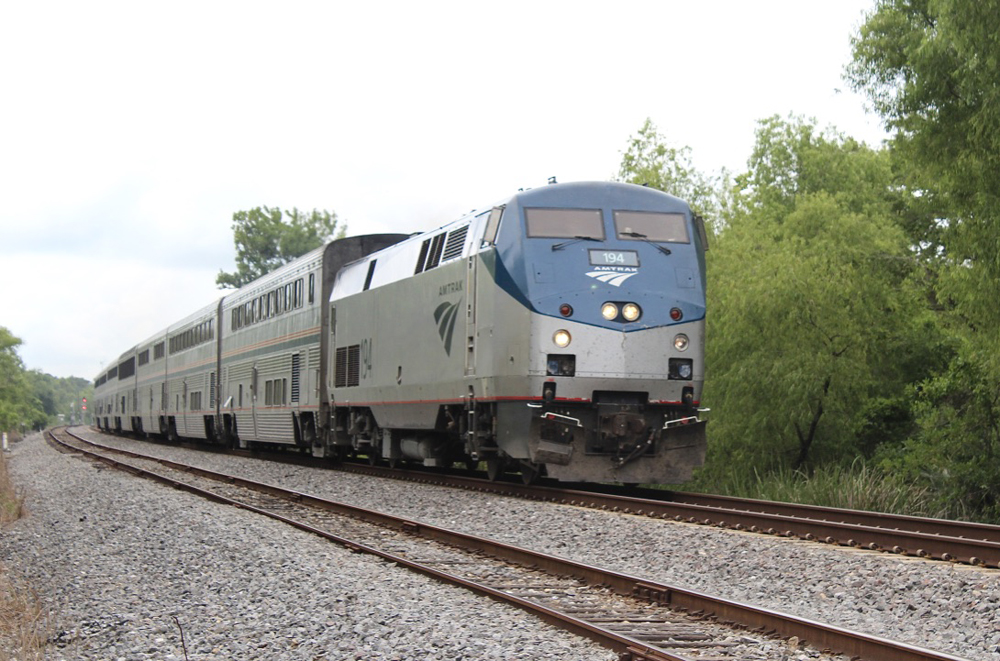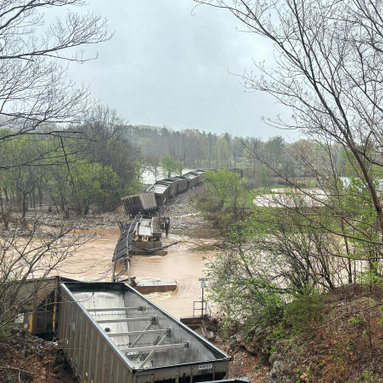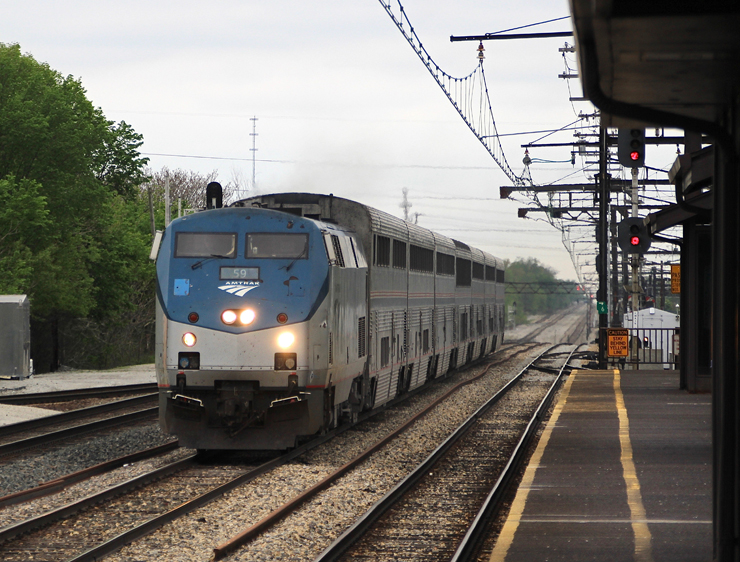
No injuries reported as CSX train derails in Nashville
Sixteen cars of a CSX Transportation train derailed early this morning in Nashville, Tenn., leading to a brief shelter-in-place order from authorities until it was determined there was no hazardous-material threat. A statement from CSX reports the derailment occurred about 3:07 a.m. CDT near West Due Avenue, and no injuries, leaks or spills resulted. Ten of the cars involved were empty; five carried wood and paper products. The remaining car was carrying ethanol, and CSX says it will secure and remove the contents of his car as safely and swiftly as possible. Photographs from the scene show at least one locomotive also derailed. The cause is under investigation. The Nashville Fire Department, which initially responded and issued the shelter-in-place order, released the scene to CSX shortly before 6 a.m.
Contractor on Sound Transit light rail project ordered to pay more than $800,000 in wages, fines
A contractor on a Seattle-area light rail project has been ordered to pay more than $800,000 in unpaid wages, fines and interest by a Washington state agency. The state Department of Labor & Industries has cited Penhall Co. for failing to pay appropriate wages and overtime to 37 workers on Sound Transit’s East Link Extension light rail project. The workers are owed almost $650,000, with one work alone owed nearly $100,000, according to an agency press release. The remainder, more than $150,000, includes fines for failing to pay the prevailing wage and filing falsified certified payment reports. The agency says it is the largest citation it has issued in recent years under its prevailing wage program, and that Penhall is appealing.
Virginia governor signs legislation for passenger station authority
Virginia Gov. Ralph Northam has signed legislation to create the New River Valley Passenger Rail Station Authority, which will allow local governments and colleges to share the cost of building a new station in Christiansburg, Va., for expansion of Amtrak service [see “Digest: Transport Canada issues updated rules …,” Trains News Wire, Feb. 23, 2021 ]. The Roanoke Times reports the budget passed by the state’s General Assembly includes $38.5 million to support the expanded service, although it is estimated startup costs will exceed $200 million. The state and Norfolk Southern remain in negotiations over the service.














Nashville now has historic rainfall and flooding. No breaks for that area…
I have a pet theory that PSR can’t survive because it requires over consumption of track use cycles. A given foot of track can handle so much use over a given period of time. But PSR train types run constantly in succession exceed those track thresh holds. The track never recovers or its useful life is consumed faster than what traditional train lengths would consume. Or another way to look at it is each rail car type has a use cycle as well. Couplers and axles all can tolerate certain thresh holds as well. But extra long consists put more demands on couplers and air brake systems, which put more stress on the trucks. It might be a combination of many effects (swiss cheese effect) or each incident is the result of different stress types. I would just like to see the empirical data that shows these constant derailment reports against the eventual causes (not watered down) and they compare to historical norms. I don’t think that is a radical, kooky question.
I remember back in the bad old days when the Milwaukee was criticized for derailments on lines west due to deferred maintenance in order to pay dividends. Times change??
Just blame the Engineer for poor train handling. I would also look at poor track conditions. Probably not string lining. The only curves near West Due West Avenue are at the Highway 155 overpass and near Old Hickory Road.
There is a junction north of Old Hickory. Slack action of a heavy train pushing against the empty cars as the Engineer applied brakes could easily cause lateral wheel flange forces against poor rail. This would cause rail rolling. Only 18 head end cars and one locomotive derailed, so speeds were slow. I recall this happening on CN some time back where a number of long travel cushion cars built up enough force to derail an empty short wheelbase tank car.
Yes John there seems to be more derailments lately. I see this one had ten empty cars involved. I wonder if these extra long trains are straight lining? With one engine derailed sounds like the empties were on the head end.
Another day , another derail. How is that PSR working for you?
Still would like to see an article or some research on the number of derail events since the Class 1’s all embraced PSR. More, Less, or the same per car mile?
Your dollar figures are transposed, showing the amount to support the expanded service. The correct amount is $83.5 million, and that is what The Roanoke Times had in their article.